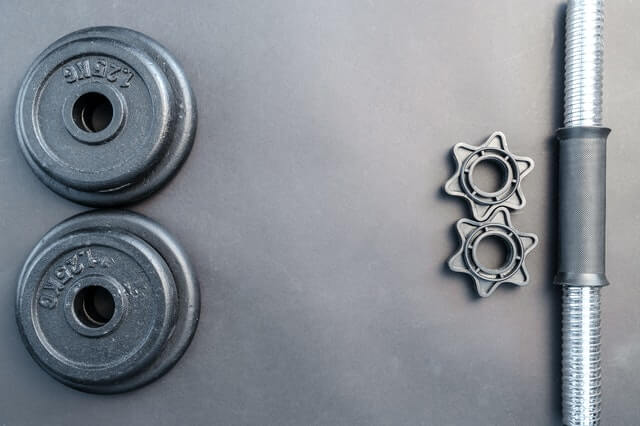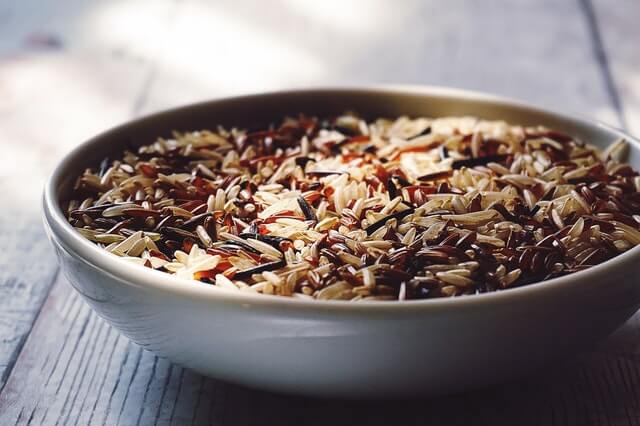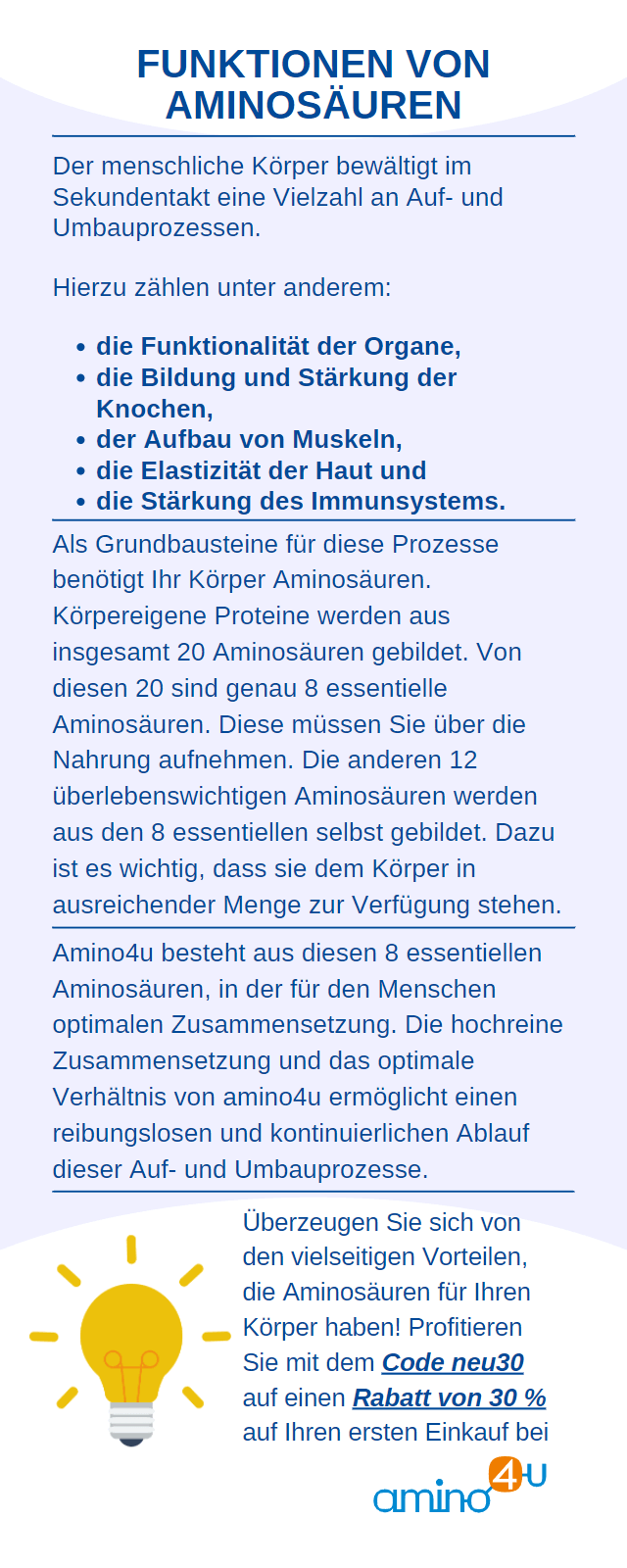Have you just won by building muscle? Or are you having a hard time gaining muscle mass? Then it might be time to specifically work on muscle growth in a mass phase.
In this article you will find basic tips on how to build mass properly - from nutrition to the best muscle training and the surprising factor of sleep.
The mass phase - that's what lies behind it
Especially in winter, there is always talk in the bodybuilding scene that it is time to start a mass phase . This is a predefined period of time during which the aim is to acquire as much body mass - i.e. muscle mass - as possible.
During this time, athletes need a targeted diet and special training in order to build mass through fitness . The right supplementation also plays a role.
Various nutritional supplements are available so that muscle building works as desired. Their selection should be carried out with as much care as the compilation of the nutrition and training plan .
It is true that an extra portion of calories is necessary to build muscle mass . But if these calories come from the wrong foods, the end result is unsightly fat deposits.
A rule of thumb when building muscle is a calorie surplus of 300 to 500 calories per day. However, a joint study from the USA and New Zealand suggests that the body can get used to the excess calories.
Therefore, it may be necessary to “ top up ” during the mass phase and adjust the number of calories upwards. Especially if the goal is to build mass quickly .

Advantages when building mass
At this point, you're wondering if only bodybuilders want to adjust measurements ? Not at all, because building muscle is also an aesthetic matter.
If men and women want to look athletic, it is recommended to take a bulking phase to allow the muscles to build .
While men are quite open to the topic - think of the classic six-pack abs - women are still hesitant to move towards losing weight and building muscle . However, appearance is not the only reason why athletes tackle the project of building body mass .
The studies analyzed by the researchers reveal further advantages:
- Stronger muscles can have a positive effect on the immune system.
- More muscle automatically burns more calories - even while you sleep.
- Muscle training can help prevent various diseases.
- Healthy and strong muscles apparently have an influence on the performance of the brain.
- Trained muscles provide an ideal basis for preventing falls and injuries - therefore gaining mass is not just a matter for the younger generation.
You don't have to become a professional bodybuilder to benefit from these effects. Studies agree that all you need to do if you want to gain mass properly is to exercise regularly and pay attention to your diet.
Build mass with the right training
Building more muscle mass needs to be well planned. A study from the USA has shown the difference between regular fitness training for a defined body and building mass .
In order for a muscle to build up, it is necessary to provide stimuli for the muscle to grow in thickness. This increase in muscle cross-section is referred to by the medical term hypertrophy or hypertrophy training .
Body mass can be built up through a combination of the following training parameters:
- frequency
- intensity
- Duration of training
- Training volume
- Type of exercises

Frequency of fitness training
If you want to really bulk up, you know that you need to train regularly all year round. A team of researchers from Australia and the USA examined various studies on the subject of muscle building and the right training.
What is particularly interesting in this case is the model of supercompensation, which a study from the USA analyzed in detail.
Supercompensation refers to the adaptation of the human body when intensive, regular stress leads to an increase in performance and thus muscle mass . If you want more muscles, you automatically challenge your body.
He reacts promptly and shifts up a gear. First, intense training disrupts the biological balance in the body, called homeostasis. In the subsequent regeneration phase, the balance is restored.
Immediately afterwards, the body switches to over-compensation after high stress. Training should occur immediately to boost performance. If the rest phase lasts too long, the body would switch back again.
Building mass and the mass phase are therefore also questions of the right timing. As can be seen from various studies on the subject, there is no perfect training frequency.
Building mass depends on factors such as training level, age, gender, stress and nutrition - and these are different for everyone. Mass building tips for beginners include doing a full-body workout three times a week.
Experienced athletes can rely on splits. This means that in a session the attention is only focused on certain muscle groups. The only important thing is that every muscle is trained at least once a week.
Intensity and duration of mass building training
The researchers divided their test subjects into two groups. The muscle mass of athletes who trained to muscle failure achieved a significantly higher rate of new protein formation in the muscle cells.
This phenomenon also allows conclusions to be drawn about the length of your pauses in sentences. You may already be taking a 60 to 90 second break between sets. Your body uses this to replenish its energy stores for the next exercise.
If you want to specifically build mass through fitness, this time interval should be adhered to. The researchers also recommend focusing on speed in mass training . A repetition should take place in four to five seconds.
When it comes to training duration, the cross-section of the various studies has a clear recommendation: you should start the rest phase after 60 minutes at the latest.
Muscle-building hormones such as testosterone are only released in the first three quarters of an hour. Afterwards, the stress hormone cortisol increases in the blood, which can prevent mass gain .
As the comparison between intensive and moderate training carried out by a team of scientists from the USA shows, it is necessary to push yourself to the limits of your own performance to gain more mass. That means your goal is muscle failure.
That sounds dramatic at first, but it's all about specifically training slightly above your performance level. Only then can optimal storage of proteins for muscle building be guaranteed.

Training volume and type of exercises
Training volume refers to the number of sets within a training session. As the study comparison revealed, some researchers tend to advocate fewer, high-intensity sentences, while others recommend as many sentences as possible.
However, according to the researchers, there is no clear recommendation for athletes because every body reacts differently. However, 8 to 12 sets are considered a guideline for building mass .
Type of exercises
Especially if you want to optimize your training for the first time, you should contact an experienced trainer. He will probably initially advise you to do basic exercises such as squats, bench presses and deadlifts .
Beginners are often advised to start with equipment in order to internalize the movement sequences. With a little more experience, you can also do your training with your own body weight or a free weight.
Fast mass building is promoted by the following exercises:
- Pull-ups
- Curls with barbells
- Rowing with barbells
- Dips
- Bench press
- Shoulder press
Other exercises can complement the mass building training.
How to build muscle mass with the right diet
After intensive mass training, your body needs sufficient nutrients. Due to the load it is necessary to supply more building materials. Therefore, in this phase you eat a hypercaloric diet - you consume more calories than you can burn.
According to a study by Boston University, one reason for this is the way nutrients are utilized in the body. The energy supplied through food is first made available to your brain and then to the organs, then the body temperature is regulated and finally the immune system is supported.
Building muscle is only at the end of this list - a high level of muscle is obviously considered a luxury by evolution. You can use your personal data to determine your basal metabolic rate and total metabolic rate using a calculator.
Total turnover is important when building mass. This is calculated from your basal metabolic rate and physical activity. However, this value is not exact and is for your guidance only.
One of the tips for gaining mass is therefore to keep a nutrition log. Enter your daily calorie intake and your weight. If your weight goes down, this is an indication that you are not consuming enough calories.
If you gain weight, this can mean an increase in muscle mass . But sometimes it is also unwanted body fat.
You should also have your body fat percentage measured regularly. If this value goes up, it would be a sign that you should put your diet to the test.
1. Proteins for more muscle mass
In the mass phase, a daily protein intake of 2.0 grams per kilogram of body weight is recommended. According to research from the USA and New Zealand, your body is able to absorb around 0.4 to 0.5 grams of protein per kilogram of body weight per meal.
In the mass phase that would be three main meals and a snack.
Some athletes think they can gain more mass if they increase this value.
A Greek study sees no benefit in excessive protein intake and points to health consequences such as an increased risk of cardiovascular disease and kidney disease.
In the bulking phase , it could therefore make sense to tailor your protein intake to your needs - but to be on the safe side, have your blood values checked regularly by your family doctor.
2. Carbohydrates for mass building
If muscle mass is continually building up , it is also due to carbohydrates. Not just because these energy sources help to achieve high performance in training. A study published in the Journal of Clinical & Translational Endocrinology highlights the role of carbohydrates as insulin signaling devices.
This hormone regulates, among other things, blood sugar levels. At the same time, insulin transports nutrients into the muscles and neutralizes the stress hormone cortisol, which causes muscle breakdown.
International studies usually only deal with the glycemic index in connection with diets. The glycemic index of a food indicates how quickly it causes blood sugar levels to rise.
The lower the value, the slower the organism absorbs the carbohydrates . This includes foods such as whole grain products, oat flakes or brown rice and bulgur. This means that the energy is available to you in the mass phase over the long term during the day.

3. Healthy fats for muscles
There are people who find it difficult to gain muscle mass and are referred to as “ hardgainers ”. As a study has shown, fats can be helpful in building muscle .
Because 1 gram of fat provides around 9.3 calories. In addition to saturated fatty acids, there are also monounsaturated and polyunsaturated fatty acids. They all play an important role in building muscle .
Saturated fatty acids, which are often described as unhealthy, should therefore also be on the menu in moderate amounts - because they ensure that testosterone levels are maintained.
Of particular interest for mass gain are the polyunsaturated omega-6 fatty acids, which are found in sea fish and avocados, among other things.
According to scientific recommendations for building mass, the fatty acid profile should consist of 20% saturated, 35% simple and 35% polyunsaturated fatty acids. When it comes to fat intake, keep your overall calorie balance in mind.

4. Nutritional supplements
As the joint research project between universities in New Zealand and the USA shows, micronutrients are crucial for muscle growth.
Most research recommending vitamin and mineral tablets is several decades old. Athletes today eat more consciously and should be able to cover their needs through their regular diet.
Depending on your personal needs, a so-called mass or weight gainer could make sense. These high-calorie drinks combine proteins, carbohydrates and creatine.
Some athletes like to use creatine. This is a substance that can increase the body's performance . If you want to build muscle quickly , you can add 3 grams of creatine daily.
Protein supplements are well known in sports circles - usually in the form of protein shakes. The shakes can help meet your daily protein needs and are also suitable as a meal replacement on stressful days.
Protein shakes could also help build and maintain your muscle mass . As the study found, there are quick proteins like whey that you can consume immediately after exercise for an energy boost.
If you want to supply your muscles with protein over the long term, casein could be a good choice. Since proteins are made up of different amino acids , importance must be placed on their composition.
There are non-essential amino acids that your body produces itself. Your attention should particularly be paid to the eight vital, essential amino acids . These are only absorbed through food.
In order for the amino acids to work efficiently in building muscle tissue , they should have a certain ratio among each other. With regular foods it is difficult to determine.
It makes sense to use a supplement here too. amino4u can help you build muscle mass . The pellets or powder are available in your bloodstream within 23 minutes after ingestion.
Conclusion: Don't just build mass with diet and fitness
Training, nutrition, nutritional supplements and of course sufficient regeneration - building mass tips like these are probably familiar to you. But did you know that optimal regeneration takes place in bed?
A Chinese study has found that one of the most important factors in gaining mass is sleep . Since the need for sleep varies greatly from person to person, even scientists find it difficult to make a general recommendation.
However, the study found that all participants who had less than six hours of sleep did not build muscle, but rather lost it. Sleeping between six and eight hours seems to be ideal.
This sleep phase requires testosterone and other growth hormones to increase. At the same time, the stress hormone cortisol, which promotes muscle breakdown, levels off towards the evening.
A long-term lack of sleep can therefore prevent muscle mass from building . However, make sure you not only get enough sleep, but also a relaxed sleep in a pleasant environment so that you are fit for work and training the next day.




